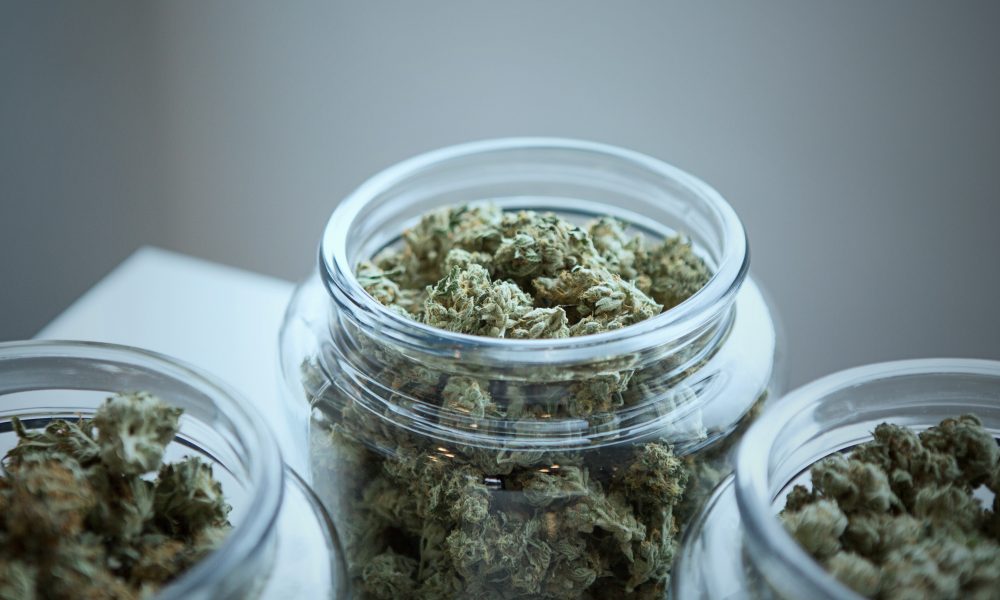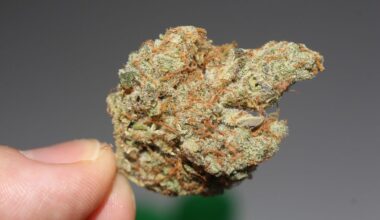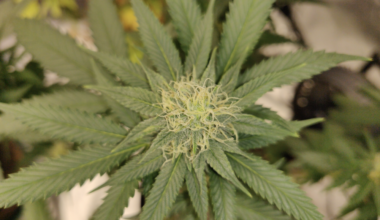A Missouri House committee on Tuesday approved a GOP-led joint resolution seeking to place the issue of marijuana legalization before voters on the November ballot.
The Special Committee on Criminal Justice passed an amended version of the legislation, sponsored by the panel’s chairman Rep. Shamed Dogan (R), in a 7-2 vote.
The development comes amid a push for separate measure to enact legalization legislatively that’s also advanced through committee but ran up against procedural hurdles on the House floor this week.
While Dogan’s measure has now moved through his committee, an activist-and industry-led campaign is still pursuing its own separate initiative to put legalization on the ballot this November.
Certain advocates and stakeholders have expressed concerns about that campaign’s initiative, voicing preference for a reform bill sponsored by Rep. Ron Hicks (R). It’s unclear when that measure might be taken up on the floor, as the sponsor was recently told by leadership that it wasn’t ready to move.
Dogan, for his part, pre-filed his joint resolution to place a constitutional amendment on legalization on the 2022 ballot late last year. He introduced a similar proposal last year, but it did not advance.
Under the lawmaker’s plan as amended by the panel on Tuesday, cannabis offenses would be removed from the state’s criminal statute, allowing adults to possess, use and sell marijuana for personal use without facing penalties, pending future regulations that could be enacted by the legislature.
The committee substitute that the panel adopted changes the original proposal by omitting provisions that would have eliminated the state’s existing separate medical cannabis program and set policies related to taxation in the adult-use market.
Dogan said that the substitute “streamlines the original resolution,” proposing a simple policy change that voters would decide on while leaving further regulations on the legal market for the legislature to decide at a later point.
Originally, his measure included language on taxing marijuana sales, distributing tax revenue, employer rights and more. The chairman said that he wanted the body to pass the amended version as a “straightforward” alternative to the initial resolution.
—
Marijuana Moment is already tracking more than 1,000 cannabis, psychedelics and drug policy bills in state legislatures and Congress this year. Patreon supporters pledging at least $25/month get access to our interactive maps, charts and hearing calendar so they don’t miss any developments.![]()
Learn more about our marijuana bill tracker and become a supporter on Patreon to get access.
—
If enacted as drafted, no police or state funds could have been used to assist in the enforcement of federal cannabis prohibition. And the state couldn’t have allowed asset or civil forfeiture for citizens of age who conducted marijuana activities made lawful under the measure.
The intent of the committee substitute, Dogan said, is to empower the legislature to craft regulations if voters decide to approve a legalization question on the ballot.
The measure no longer includes “caps and [licensing policies] and all that stuff,” he said. “The legislature could say, ‘you know, we’re going to have people operate [a marijuana business] within 20 feet of a school zone or not,’ or the legislature can say, ‘you can have 10 licenses or you can have 20. That’s left up to future legislatures.”
The effective date of the resolution is January 31, 2024, giving lawmakers more than a year to craft regulations if the proposal makes it to the ballot and is then approved by voters.
Meanwhile, if advocates want to get legalization enacted through the legislature this session, there’s little time left to spare. The Hicks bill is expected to reach the floor imminently, but the session ends on May 13.
Hicks recently said that the timeline remains feasible and he’s “seen bills sail through the process in a week.” The lawmaker said that it “really comes down to whether we have the will to tackle it.”
The bill he’s proposing would legalize the possession and sale of cannabis for adults 21 or older, provide opportunities for expungements, authorize social consumption facilities and permit cannabis businesses to claim tax deductions with the state.
Advocates wanted to see the bill move through the committee process without revisions to the introduced legislation, but members did end up adopting several amendments in the first committee stop.
Another Republican lawmaker in the state, Rep. Jason Chipman (R), filed a joint resolution this session that would let voters require additional oversight over how medical cannabis tax revenue is distributed to veterans.
Meanwhile, the group New Approach Missouri, which successfully got a medical cannabis initiative passed by voters in 2018, announced last summer its plans to put the reform proposal on the ballot through its new campaign committee Legal Missouri 2022. The signature turn-in deadline for ballot initiatives this year is May 8.
The organization tried to place the issue of legalization before voters in 2020, but the COVID-19 pandemic derailed that effort.
Despite the health crisis, activists managed to collect tens of thousands of raw signatures within months, though they needed 160,199 valid signatures to qualify.
A different campaign, Fair Access Missouri, separately explored multiple citizen initiatives this year with the hopes of getting at least one on the ballot.
Another state lawmaker filed a bill late in February to decriminalize a range of drugs including marijuana, psilocybin, LSD, MDMA and cocaine.
The measure’s introduction came after a Republican Missouri legislator filed a separate bill to give residents with serious illnesses legal access to a range of psychedelic drugs like psilocybin, ibogaine and LSD through an expanded version of the state’s existing right-to-try law.
Additionally, a Missouri House committee held a hearing in March on a GOP-led bill to legalize a wide range of psychedelics for therapeutic use at designated care facilities while further decriminalizing low-level possession in general.
Nearly one out of every 10 jobs that were created in Missouri last year came from the state’s medical marijuana industry, according to an analysis of state labor data that was released by a trade group last month.
Separately, there’s some legislative drama playing out in the state over a proposal that advocates say would restrict their ability to place Constitutional amendments on the ballot.
Connecticut House Approves Psychedelic Treatment Program As Part Of Budget Bill
Medical Disclaimer:
The information provided in these blog posts is intended for general informational and educational purposes only. It is not a substitute for professional medical advice, diagnosis, or treatment. Always seek the advice of your physician or other qualified healthcare provider with any questions you may have regarding a medical condition. The use of any information provided in these blog posts is solely at your own risk. The authors and the website do not recommend or endorse any specific products, treatments, or procedures mentioned. Reliance on any information in these blog posts is solely at your own discretion.







